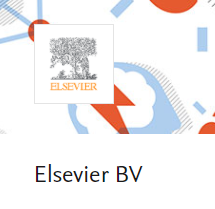Stanford-Elsevier: Most-cited researchers in the world
 Every year since 2019, researchers at Stanford University, with the collaboration of Elsevier-Scopus, have published a study on the most-cited authors in the world, based on their publications in the Scopus database.
Every year since 2019, researchers at Stanford University, with the collaboration of Elsevier-Scopus, have published a study on the most-cited authors in the world, based on their publications in the Scopus database.
Among other information, the study provides two large tables in which it positions the 100,000 most-cited authors in the world by field. Since 2020, it has also included researchers who, even though they are not ranked in this first group, are among the 2% most cited in their main discipline.
Of the two tables, the first considers the professional career of the researchers and includes the aggregated results from 1996 to the year before the edition. The second is focused only on the last year in the series, and could forecast future situations if the trends are maintained. Each of the tables contains around 200,000 entries.
To classify them, the authors of the study consider the results of a compound indicator that they calculate based on six citation indicators: total citations, h Hirsch index, Schreiber’s hm-index adjusted for co-authorship, the number of citations of articles as the sole author, the number of citations of articles as the sole or first author, and the number of citation of articles as the sole, first or last author.
The number of fields and disciplines in which the publications are classified has gradually increased, to reach 22 fields and 174 disciplines in the 2022 edition. For each researcher, information is provided that refers to their main field and the two disciplines in which they have published most of their work.
Given the differences between fields, the editors recommend limiting comparisons to the same subject area. It is not recommendable to compare data between editions that have undergone a considerable methodological change, which was the case between the first and second edition, if not others.
The authors of the study share the information through Creative Commons. This means that the data can be used freely, as long as the source is cited.
Share: